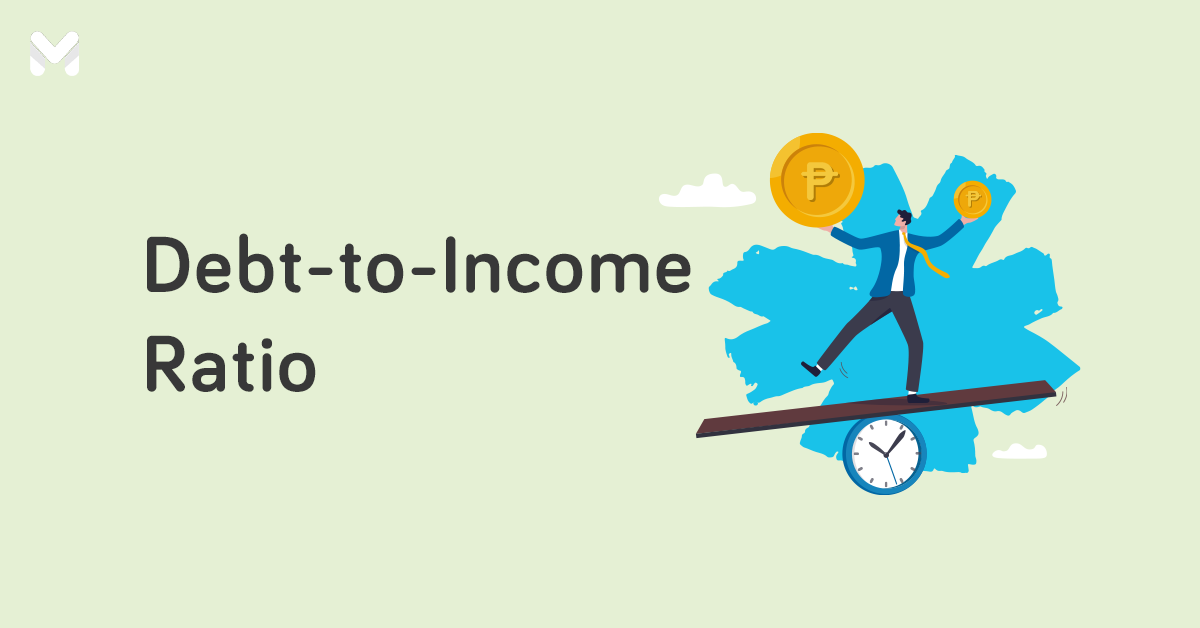It’s normal to catch yourself wanting to become a parent after watching a few adorable baby videos online. But realizing all the costs from pregnancy to child-rearing is enough to make you think otherwise.
In the Philippines, inflation is set to an average close to 6% in 2023, according to the International Monetary Fund.[1] With the rising prices of basic commodities and everything else in the country, Filipinos are tightening their belts and looking for ways to save and further stretch their money.
So before you make the big leap, know first the costs of raising a child in the Philippines and whether you’re financially ready for it.
The Costs of Raising a Child in the Philippines: What to Consider in Your Monthly Budget
Monthly spending varies from one family to another. But here are a few considerations and average estimates you might want to check before deciding on having a baby.
Note: The costs in this article are estimates to give parents an idea of how much they should budget every month to cover their child's needs. The actual costs of raising a child vary from one household to another based on different factors.
💸 Housing: ₱5,000 to ₱25,000

Not everyone owns a home to raise kids. But, ideally, you should have your place to rent or pay off before having a baby. You wouldn’t want a cramped bed space for ₱2,500 a month to accommodate you, your spouse or partner, and the baby altogether.
The housing cost estimate of ₱5,000 to ₱25,000 covers the monthly minimum rental fee for a studio apartment or a Pag-IBIG housing loan amortization.
Rent expenses differ depending on the location, the number of rooms, and amenities. If you opt for a condominium somewhere in Metro Manila, you might want to set aside at least ₱15,000 for rent or loan amortizations for a studio or one-bedroom apartment.
Growing children may need to have their own rooms for privacy, so consider renting or owning at least a two-bedroom home.
How to Save on Housing/Accommodation Costs
Most employers now adopt a hybrid work setup. Some have even gone fully remote. Since a hybrid work setup requires you to go to the office only once or twice a week, consider moving to the nearby provinces in Metro Manila for a cheaper rental.
If you plan to stay in the metro, look for homes a little farther away from the central business area or in the suburbs (e.g., Bulacan, Cavite, Laguna, Rizal, etc.). Properties in these locations are much cheaper and bigger than those offered within or near the business district.
💸 Education: ₱5,000 to ₱10,000
Education becomes more expensive the older your child gets. Aside from tuition fees, you have to prepare for many other expenses: miscellaneous fees; monthly allowance for food and transportation; and learning equipment and materials such as a laptop, books, and school supplies.
The total college tuition for a four-year course alone can cost millions of pesos. Also, consider that funding all school expenses will take 12 to 16 years (longer if you'll support your child's master's education). This is why young parents should start building their children’s tuition fund as early as possible.
How to Save on Education Costs
You can plan a savings strategy or invest a certain amount in a small business. Some investment vehicles also include educational plans, mutual funds, unit investment trust funds (UITFs), stocks, and variable unit-linked insurance (VUL).
For parents who want to secure their children's future, a good VUL plan to consider is Protect Your Goals by Singlife, the first purely digital life insurer in the Philippines.
With this VUL product, your money will be invested so that it grows over time. It also includes life insurance coverage, so that in case something unfortunate happens to you, your family will get 125% of the premiums you’ve paid.
You can get this product through the Singlife Plan & Protect App in just a few clicks. Plus, you can start investing with as little as ₱500 monthly and gradually increase your contributions when you can do so.

Wondering how much you can grow your money for your child's future through Singlife? If you save ₱1,900 per month for 10 years, you'll have ₱300,000 for your child’s college tuition fees with Protect Your Goals.
The funds are managed by the Philippines’ top investment managers: ATRAM Trust and Metropolitan Bank & Trust Company - Trust Banking Group. Plus, there are zero entry fees—which means Singlife invests 100% of your money!
Start building your child's education fund as early as now. Avail of Protect Your Goals via the Singlife Plan & Protect App—no financial advisor needed.
💸 Healthcare: ₱5,000 and up
Although you might have the privilege of adding your dependents to your company's health maintenance organization (HMO) package benefit, you still need to prepare enough funds for emergencies.
Healthcare is a reasonable item to add to the entire cost of raising a child in the Philippines. Most hospitals are full, and you might need the help of a specialist whose professional fee costs more than someone from an HMO-accredited hospital. Parents should at least save 8% of their monthly salary for their children’s health care.
Consider your child’s health condition when saving up for healthcare. Some children are born with medical complications while others may have special needs.
How to Save on Child Healthcare Costs
-Oct-20-2023-05-49-49-2785-AM.png?width=675&height=450&name=Pics%20for%20blog%20-%20600x400%20(15)-Oct-20-2023-05-49-49-2785-AM.png)
Prevention is always better than cure. Provide healthy food for children at home. Do away with preserved and junk foods. Instead, prepare homemade merienda that are healthier and even cheaper.
Also, make sure to bring your baby to their regular check-up with their pediatrician. Never skip a vaccination, especially during your baby’s first year. Some HMOs in the Philippines allow reimbursements for your dependent children’s vaccinations, so make sure to avail of this benefit.
You can also look for free vaccinations offered by the barangay health center in your area. Most barangay health workers will notify you once vaccines and medicines are available.
Lastly, get health insurance to cover the costs of hospitalization, treatment, and more. With this coverage, you won't have to pay for everything out of pocket.
Looking for health coverage options for your child? Singlife offers Protect from Medical Costs that covers hospital confinement and other medical expenses—from mild to severe cases and all stages of illnesses. With its family plan option, everyone gets to enjoy coverage as well.
Protect from Medical Costs is available and can be availed of through the Singlife Plan & Protect App.
🎁 Bonus: Get Free Life Insurance from Singlife
Until May 30, get free life insurance from Singlife! This comes in the form of ₱251 Singlife Credits, covering death and disability worth up to three months of your declared salary.
Here’s how to avail of the promo:
- After downloading the Singlife Plan & Protect App and creating an account, choose Redeem a Voucher as a cash-in option.
- Enter the code MOM250. Note that you must redeem your free credits within 90 days from receipt of the code.
- Wait for ₱251 to be credited directly to your account.
Use your free credits to get up to three months’ worth of life insurance or buy other products via the Singlife Plan & Protect App. Make sure to grab yours ASAP—limited vouchers are available daily!
💸 Childcare Services: ₱5,000 to ₱10,000
Childcare services are necessary when you decide to go back to work after giving birth or even when you work from home and can't efficiently manage your time.
They may cost as much as ₱10,000, depending on your arrangement with the nanny or caregiver. An all-around stay-in helper may be paid at least ₱5,000, though experienced nannies may require more.
How to Save on Childcare Costs
Being a stay-at-home parent makes sense if you live in a dual or multiple-income household and don't want to hire a nanny or helper. Consider taking freelance jobs or running a home-based business that will allow you to still earn money while taking care of your child.
However, if that's not an option, reach out to your family members for help. Your parents, for instance, might be happy to bond with their grandchild while you're at work.
If you work in a company with flexible working hours, ask your employer about adjusting your schedule. Or find a new job with a remote setup.
💸 Food: ₱3,000 to ₱10,000

How much you’ll spend on food depends on the age and the number of kids you're raising. If you’re a first-time parent, you can opt for the most expensive formula milk in the Philippines or find good but cheaper alternatives. Fortunately, there are quite a few options that you can get in supermarkets, drugstores, and online stores.
To get an idea of how expensive milk for a baby is in the Philippines, here’s a price list:
| Formula Milk | Price |
|---|---|
| Enfamil A+ One NuraPro Infant Formula Powder for 0-6 months (350g) | ₱744 |
| Similac with HMO for Infants 0-6 months (400g) | ₱870.50 |
| Bonna Stage 1 Infant Formula for 0-6 months (1.2kg) | ₱849.75 |
| Lactum Infant Formula Powder for 0-6 months (1.2kg) | ₱870.50 |
| S26 Gold One Infant Formula for 0-6 months (1.8kg) | ₱3,049.00 |
| NAN OptiPro Two Milk Supplement for 6-12 months (1.3kg) | ₱1,942.75 |
| Enfamil A+ NuraPRO Two Milk Formula Powder for 6-12 months (1.8kg) | ₱3,060.50 |
| Enfagrow A+ Three NuraPro Milk Supplement Powder for 1-3 years old (1.2kg) | ₱1,775.50 |
Source: Watsons Online Store
As you can see, formula milk for one child can cost up to ₱3,000. Include it in the total cost of raising a child in the Philippines because you’ll need to buy formula milk from your child’s birth up until they’re five or six years old.
Of course, it’s a different story if you opt to breastfeed your baby—a wise move in these financially challenging times.
For the same age bracket, include vitamins and supplements, baby food, and family meals. Once your baby's diet includes solid food, you can feed them what most adults eat. You can budget ₱100 per meal for each adult in the household and around ₱70 per meal for each child.
How to Save on Food Costs
If it's possible, breastfeed your baby and cook food at home to reduce the food cost by as much as 50%. Food deliveries are priced higher[2] than your actual spending when you cook at home.
Also, maximize your credit card benefits, rewards, and points when buying groceries. Whether for dining promos or cashback, you’ll benefit from swiping those cards for your grub.
💸 Clothing: ₱2,000 and Up
-Oct-20-2023-05-47-56-8638-AM.png?width=675&height=450&name=Pics%20for%20blog%20-%20600x400%20(14)-Oct-20-2023-05-47-56-8638-AM.png)
Would you believe that baby clothes are more expensive than adult clothing? Chances are you’ll spend more on baby clothes when your kids are aged 0 to 9 compared to when they’re 10 years and older.
Prices of clothes depend on the type of fabric used and the time and other resources spent when making the product. Logically, an adult shirt uses more material compared to a baby’s shirt. However, it takes more time to finish the smaller ones due to the intricacies and precisions required.
How to Save on Kids' Clothing Costs
Save more on clothing by accepting or asking for hand-me-downs and buying non-branded products. For example, branded summer pants for little girls can cost up to ₱450, yet you just need to pay ₱150 for unbranded ones.
You can also trim your family budget when you buy from garage sales, discount stores, and thrift stores. Join barter groups where more people are willing to give away clothes and baby stuff that are as good as new in exchange for food and grocery items.
How Much Does It Cost to Raise a Child in the Philippines?
Considering all the childcare costs, raising a child in the Philippines from birth until the legal age of 18 requires at least ₱25,000 each month or ₱300,000 a year. That means parents should be earning as much as ₱75,000 each or ₱150,000 combined monthly minimum salary to provide for a child's basic, emergency, and long-term needs.
Raising a child with a disability is even more expensive in the Philippines. A UNICEF study found that childcare costs—including living expenses, healthcare, and education—are 40% to 80% higher in households with children with disabilities.[3] So it's best to take this into account when preparing for child-rearing costs.
5 Signs You’re Financially Ready to Raise a Child
Your finances and how you manage them play a role in determining whether or not you and your partner are ready to raise a child. There’s no perfect time when everything in your life will be aligned financially, emotionally, or physically.
But you can do some things to make sure you’re in the best position to welcome a baby into your life. So, how do you know you’re financially ready for a baby?
👍 You and Your Partner Have Discussed It
It’s one thing to say, “I want us to have a baby,” and another thing to talk about it in terms of finances. Talking about it from a financial standpoint signals the start of your planning phase as a family.
If you’re talking about having a baby and also saving money for pregnancy and child-rearing expenses, it’s a sign that you’re serious about it and want to be ready when it happens.
👍 You’re Ready for the Changes

Aside from being on the same page with your partner about wanting to have kids, you also understand and accept everything that will come with being a parent and raising a child.
It’s not a glamorous and easy job. Child-rearing in the Philippines requires hard work, flexibility, and commitment as far as your personal life, time, and money go. If you can say yes to making adjustments to your current lifestyle and give way to the responsibilities and monthly expenses for a baby, then you’re ready to be a parent!
👍 You’re Financially Stable
You're ready to start a family if you have a stable, well-paying job. If you get sick or hospitalized, you have health insurance to pay for the medical expenses.
Saving is also a part of your routine, whether for your short-term or long-term goals. You have a robust emergency fund and some low-risk investments.
All these are indications that you’re ready to have a child.
Having a baby is a life-changing experience that also comes with many expenses. If your finances are not in good shape, it will be harder to provide for your baby. Financial stability is crucial to ensuring a secure and comfortable life for your family.
👍 You’ve Paid Off Your Debt
Because it's expensive to raise a child in the Philippines, paying down or fully repaying your debts will give you more wiggle room in your budget. It will also help offset the expenses you’ll incur with your baby's arrival.
👍 You’ve Prepared for the Future
Having a child is the beginning of a new adventure. The most significant sign that you’re ready for the responsibility is that you’re already providing a financially secure and stable life for your future children as early as now. You’re preparing for every possibility that may cross your path.
You’ve started putting together a budget and a newborn checklist that covers potential costs before the baby arrives. You’ve also taken financial preparedness more seriously, so you have health insurance, life insurance, an emergency fund, and a retirement fund.
If you're just starting to build your family's future, it's okay to take baby steps! Financial planning tools like the Singlife Plan & Protect App can help you in your journey as a parent. Access life insurance and investment products that you can customize based on your budget and needs, all within one app.
Read more: Planning to Start a Family? Take These Steps to Prepare Financially
3 Tips on Preparing for Your Monthly Family Expenses
Here are a few ways to future-proof your child-rearing journey:
✅ Start Saving
Set up a baby account and start saving. It could be a regular savings account that requires only a minimal initial deposit. Start funding your needs from pregnancy until your child grows up.
✅ Make Adjustments

Review your current budget and make adjustments to reduce your spending on non-essentials. Consider canceling your gym memberships, streaming subscriptions, and other expenditures of this sort. Then use the money you’ll save to start building your baby fund and help cover the estimated cost of raising a child.
✅ Review Your Insurance Coverage, Leave Benefits, and Government Contributions
Evaluate your insurance coverage. You might be missing some critical benefits or find something you can maximize to save more money. Check with your employer regarding maternity and paternity leaves and benefits.
Government contributions are mandatory. Visit your accounts and check whether all your contributions are posted to ensure you get the benefits you’re entitled to when the baby comes.
Final Thoughts
With the high costs of raising a child in the Philippines, delaying life events like getting pregnant and having a baby seems the most straightforward and practical solution. But if you’re in a good financial situation or you can prepare yourself financially before the baby comes, you can definitely make that big leap to parenthood.
Planning financially to raise kids may seem like a daunting task, but the good news is that digital tools like the Singlife Plan & Protect App help make things easier for parents now. It has a financial planning feature that provides personalized calculations of how much you should save for four big needs and tracks your progress towards achieving them. It also covers you with life insurance equivalent to three months’ worth of your declared monthly income when you start saving in the app’s Emergency Fund, which will be helpful for your family. You can start with as little as ₱250.
Best of all, you can purchase a full suite of insurance and investment products within the app in just a few taps. The Singlife Plan & Protect App is a must-have financial app to download if you're a parent.

Sources:
- [1] High inflation clouds Philippine growth outlook in 2023, IMF says (Reuters, 2023)
- [2] How Much Cheaper Is Cooking at Home Than Takeout? We Do the Math (CNET, 2023)
- [3] The Cost of Raising Children with Disabilities in the Philippines (UNICEF, 2022)







_CTA_Banner.png?width=751&height=219&name=Singlife_Main_KV_(Sep_2023)_CTA_Banner.png)
_1200x350.png?width=734&height=214&name=Singlife_MOM250_Promo_(May_2024)_1200x350.png)


